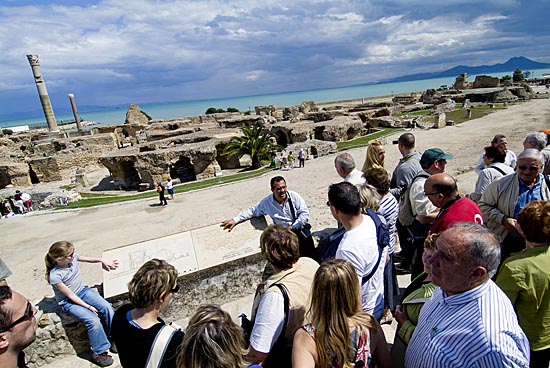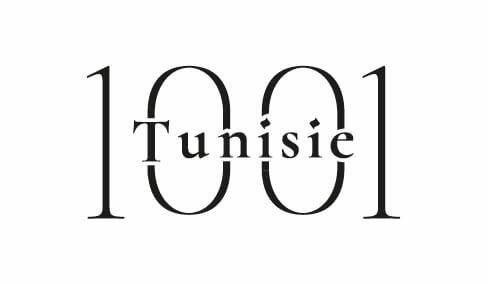
1001Tunisie: In crisis communication, what mistakes not to commit to accentuate the crisis rather than manage or mitigate?
Erich Alauzen: If it is easier to manage a crisis occurring in business involving a service or product, it becomes much more difficult to manage when it is a tourist destination.
Unfortunately, in the world, the reactions are different and often show a complete misunderstanding of a treatment yet the crisis is so serious when it is a tourist destination as a whole. For a country such as Tunisia, a crisis may ruin the whole country. Just imagine that the attack in Sousse has claimed many lives …
Communication then remains the watchword
Absolutely. Communication remains the key word in the destination management crisis since just after the crisis, massive media coverage occurs. Essential Parameter : it is the media that shape public opinion and this is the opinion that decides the end of the crisis. We do not communicate in a slightly destination of crisis. communicating effectively relaying the types of measures that a government and a Ministry of Tourism has taken. In addition, it provides evidence to the farms and proven measures. We communicate well and quickly. This kind of communication is also called, communication by the evidence.
But more precisely, what are fatal errors for the Tunisia destination?
To answer your question more specifically, the main mistake not to commit is the lack of transparency and indifference. A destination context of crisis calls for humility, empathy and credibility. It does not ignore the crisis, we take it head on, digested immediately, it is exposed to the whole world in its own words – speaking first to avoid falling back into defensive behaviors – and it shows that it is reacting vigorously. Silence, following denials and the famous ‘no comment’, falsely reassuring statements are banned as are not followed declarations of intent to concrete facts.
What should be done ?
Invite local and foreign journalists to see with their own eyes the quality of measures taken, not to mention the tour operators. In other words, it is not reassured by words, we reassured by facts and by images of reality. Such a result is obtained by an excellent coordination of the players that make up the famous Crisis and public which are the media, the general public, victims, hoteliers, the national airline, etc.
All actions of ‘repair’ are implemented in parallel (green number, website, press conferences, press releases writing, psychological support cells, foreign press invitation and tour operators …) All in a positive attitude and an integral exemplary behavior under the baton of a crisis communicator conductor surrounded by a dedicated team of actors in the public and private sectors from all towards one direction: the end of the crisis.
The origin of the Tunisian crisis originates in Tunisia: therefore, the answer to the crisis is in Tunisia which must bear alone the whole responsibility for his treatment.
What is crisis communication?
In short, the crisis communication is the set of technical and communication measures implemented to fight against the negative effects of an event on the company’s image or its products or in our case, of a destination.
Crisis communication requires rapid decision-making, but thoughtful, and the mobilization of a suitable device to prevent the deficit from the image of the troubled entity worsens. Panic, hot reactions, decisions without thinking and bad advice around you can bring the company or destination to multiply the effect of the crisis and to make it even more serious, more publicized, more traumatic.
The communicator crisis intervenes to bring her outside eye, expert and serene that gives new light. A well-handled crisis, we need to know, can often pave the way for new behaviors, new processes and new procedures that prevent its reproduction.
Do you think the Tunisian tourism has a real crisis communication?
No, i dont think so. The press conference held by the minister of tourism after the events of Sousse has not really reassured.
I do not question the measures taken by the Ministry of Tourism (budget given to hotels to acquire safe material, being given to security guards hotels, etc.), nor his concern for transparency, but these measures and this will came too late and should have occur before the crisis that all warning signals were red.
In addition, these words and these measures were not followed by facts made available to the media and international tourism stakeholders working with Tunisia: the amount of the budgets allocated to hoteliers, what has changed since Sousse in the safety of hotel establishments the upstream actions such as the airport of the country …
There was talk of a crisis cell. The “Riadh Palms” is the ultimate serious warning signal and without appeal that sprays all other warning signs that the country constantly receives. Although we were told repeatedly that the Sousse event did not have tragic consequences for short-term tourism (few cancellations, few customers from the “Riadh Palm” on the day of the attack) the crisis is still running such an insidious disease that requires excellent doctors.
What do you suggest to get out of the vicious circle of negative communication that encircles the Tunisian tourist destination and the country in general?
I’ll be a poor communicator crisis if I answered that question, because we have to know absolutely all the ins and outs of a crisis package before you can start to think and find solutions.
At first glance, I would say that advertising on the destination that we are now seeing in Europe, brings nothing answers to our image deficit. The Tunisian Tourism has entrusted its communication to a foreign company established abroad, I do not think it was the right solution when agencies established in Tunisia may “live” the Tunisian tourist product and better in terms of export image and communication. The visuals displayed in France, for example, in no way impact and border on banality.
In 2011, the world vibrated in this wonderful small country of Tunisia … I think we can repeat this feat by an empathetic communication, symbiotic, frank to the image of his people … I would favor to Besides a textual communication that visual. Of course, the essential condition to succeed such a bet is to eradicate insecurity, hyper-hyped and exaggerated in France for example.
We remember Documentary Special Envoy which headlined “Tunisia under Salafist threat” and whose oriented remarks had immediately caused a slowdown in bookings or cancellations. Let us not forget either the impact of foreign ministries of the emitters when stating the destination as a risk area … or the recommendations of insurance companies with respect to the destination.
To conclude, I would speak sadly of the vulnerability of the Tunisia destination … If tourists have forgotten the attacks in Egypt is Egypt because the destination is not trivial and tourism will never relocated (on finds no pyramids or Abu Simbel Temple in other destinations; the offer is unique and indispensable).
Unlike Tunisia, which only offers sand, sun, heat and blue skies easily found in other lands our tourists … If, unfortunately, a serious event it unfolded, put the destination on track take a long time. That is why we must do everything to eradicate insecurity and first parallel, apply all crisis management techniques.
A final more positive note: a well-managed crisis always bring a plus in terms of communication to the destination. Indeed, the tenfold increase in its exposure in the media, increasing its credibility, making its tourists safe and strengthening its ties with international actors will only be beneficial.
{} Mainvote


 َAbonnez-vous
َAbonnez-vous

